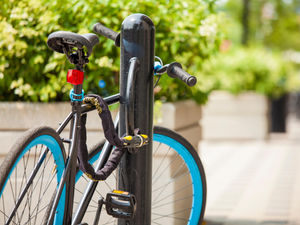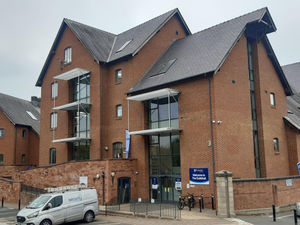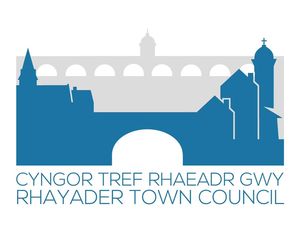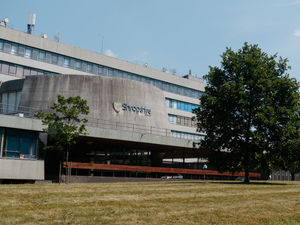Ukip itching for the next round, says former Ludow MP Christopher Gill
Ukip grandee and former Ludlow Tory MP Christopher Gill reflects on his current party's future.
What future now for Ukip after the General Election? A positive one, says Christopher Gill, now president of Ukip in south Shropshire:
This time last year, in the aftermath of the European Parliament election, I forecast that the UK Independence Party was here to stay.
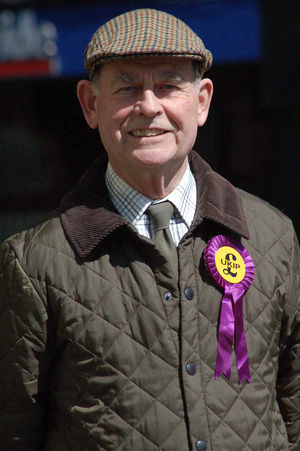
"At the European Parliamentary election in 2014 Ukip had come top of the poll with 27.5 per cent of the votes cast. In the General Election on May 7 this year it garnered 3,881,129 votes – that is more than the Liberal/Democrats and the Scottish National Party put together but, as is well known, whereas the Lib Dems got eight seats and the SNP 56 seats, Ukip got only one.
That Ukip didn't get more seats is occasioned by the fact that under the 'first past the post' system it is extremely difficult for a new party to score well, particularly if their vote is spread evenly around the country rather than concentrated in specific areas.
Nevertheless, to have come second in 120 constituencies and third in 354 others shows just how far this party has come in 22 short years and indicates that, come 2020, it will be very much a force to be reckoned with.
Ukip was established in 1993 in protest at the Conservative Government's ratification of the Treaty of European Union (The Maastricht Treaty). At first it was little more than a "pressure group" but as it became increasingly obvious that all of the political parties represented in the Westminster Parliament are committed to "ever closer union" within the European Union so Ukip has grown and grown – from 600,000 votes in 2005, to 900,000 in 2010 and now, in 2015, nearly four million.
To achieve such progress within such a relatively short space of time Ukip has had to become more than just a mere "pressure group" and, as can be judged by the manifesto published prior to the General Election, it is now a fully-fledged party in every sense of the word.
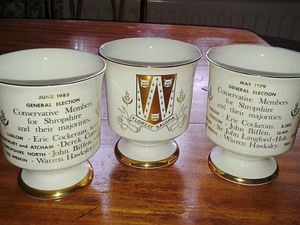
With the Shropshire political scene turning true blue for the first time in over 30 years, the Tories' cup of joy runneth over.
And these mementoes from the last occasions when the Conservatives scored a "bluewash" in the Parliamentary elections raise a question – will the Tories be having special Coalport mugs made this time round?
The commemorative goblets used to belong to the late David Boag, a key figure among Shropshire's Conservatives, and commemorate the general elections of June 1970, May 1979, and June 1983, which, until the general election result of earlier this month, was the last time that Shropshire returned Conservative MPs in all the county's constituencies.
"My father was very active in the Conservative Party in the Wrekin around the 1970s and 1980s. He was later awarded the MBE," said Mr Boag's daughter, Mrs Alison Clare, of Rodington Heath.
He died on May 9, 2013.
"My parents passed away quite close together and it was when we were clearing the house that I saw these goblets, which had been there all these years. They were sitting in a display unit in the lounge. I have two sisters, and neither of them wanted them, and rather than give them to a charity shop or whatever, I thought it would be sensible to donate them back to the Conservative Association," said Alison.
She decided to get in touch with Mrs Dorothy Roberts of the local Conservatives to donate the goblets.
"They sat around in my house, and then something came through the door with Dorothy Roberts as a contact number. I got round to ringing her up and dropping them round to her house."
Mrs Roberts has done some asking around to try to find out more about them, but with the passage of time it has not proved that easy.
"I assume that it would have been arranged to have them done by the Conservatives at the Shropshire County Council as the central body," said Mrs Roberts.
"I think I heard Owen Paterson mention on Radio Shropshire that he had one, and someone else said that her mother had one. I have no idea how many were sold or how much they cost, but they are really rather fine."
Indeed Mr Paterson, the newly re-elected North Shropshire Conservative MP, does have one dating from the 1970 general election triumph.
"It's not a mug – it's a pot – which I think John Biffen gave me," said Mr Paterson.
"I want to replicate it, and I'm looking to work with a Shropshire company to do that."
At the recent General Election another factor, as most political commentators would surely agree, was the "fear factor" created by the SNP which unquestionably resulted in potential Ukip supporters voting tactically in an attempt to de-rail the menace of a Miliband/Sturgeon coalition.
Ironically, many of those who voted tactically for the Conservatives failed to appreciate that the way to unseat Labour MPs in northern seats, such as Heywood and Middleton, was to vote Ukip.
That Cameron's Conservatives did so well is in no small part due to their success in scaring the electorate witless about the threat posed by the prospect of the Tartan Army coalescing with Labour to form the next administration.
Sadly, the self-same scare tactics which served Cameron so well on May 7 will almost certainly be deployed again when it comes to the promised in/out referendum on European Union.
Doubtless we will be told – by many of the same old dinosaurs, incidentally, who preached catastrophe if we didn't join the Euro – that if we pull out of the EU unemployment will rise, that national security will be put at risk, that our influence in the world will be reduced and that our destiny lies, not with the growing populations and expanding economies of the 53 nations of the British Commonwealth and the rest of the world, but with the falling populations and the stagnant economies of the totalitarian and corporatist European Union.
Come the promised referendum, Ukip will be the only political party that is unequivocally opposed to membership of the benighted EU.
This is in stark contrast to the Conservative Party, which will be split down the middle as, for example, in our own county where it seems reasonable to suppose that Shropshire North MP, Owen Paterson will be in the "no" camp and his Ludlow colleague, Philip Dunne MP, in the "yes" camp.
Ukip emerges from the General Election bloodied but unbowed. It is not despairing that under the "first past the post" system it has not achieved the level of parliamentary representation that it feels it deserves and it recognises, firstly, that the Conservative Government that has just profited by the first past the post system will hardly be interested in changing it and secondly that, given the opportunity in a referendum in the last parliament, the people voted decisively against such change.
In spite of the current "little local difficulties" that all political parties routinely suffer Ukip will "Keep Calm and Carry On", secure in the knowledge that with local elections and another European Parliament election to be held before the next General Election, not to mention the prospect of the promised EU Referendum, it lives to fight another day.
It is a moot point as to how long the people of this country will submit to being governed by those that they neither elect nor can hold to account but one of the crucial lessons that history teaches us is that people eventually demand to be governed by those that they themselves elect and whom they can just as easily get rid of – it's called democracy.
Ironically, in the period 1921 to 1997 Britain granted independence to more than 50 former dominions and colonies only to surrender its own priceless independence to the EU in 1992."

